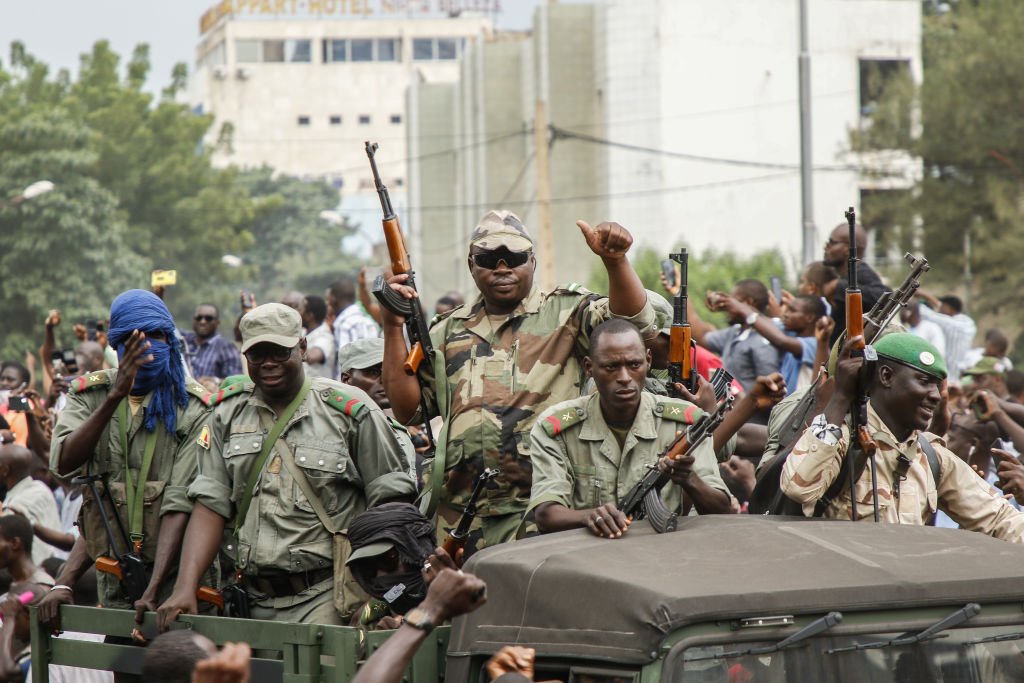Military coup
Following mass anti-government protests from June 2020, military officers under the banner of the National Committee for the Salvation of the People (NCSP) toppled the government in a military coup on 18th August 2020 and arrested president Ibrahim Boubacar Keïta and prime minister Boubou Cissé, along with other officials. A few hours later in a broadcast, president Keïta resigned, announced the dissolution of the government and the National Assembly and remained detained by NCSP until his release on 27th August 2020. The coup brought thousands of Malians to the streets in Bamako to celebrate the fall of the president and his government amid international condemnation of the coup. The African Union suspended Mali's membership, while ECOWAS, the regional bloc, ordered sanctions against Mali, including the closure of all borders with Mali, ceasing all economic, trade and financial flows and transactions between ECOWAS member states and Mali and the suspension of Mali from all decision-making bodies.
As reported previously on the Monitor, mass anti-government protests erupted in June 2020 following disputed legislative elections. Underlying grievances include the failure of the government to respond to insecurity, both due to attacks by Islamist insurgent groups and inter-communal violence, its failure to stop the violence in the country, corruption and dire economic conditions.
Transitional government appointed
In early October 2020, a transitional government was appointed, with some posts held by military officers and others by civilians, starting an 18-month long transition period after which elections will be held. Previously in September 2020, retired colonel and former Defence Minister Bah N’Daou was announced as Interim President. Political groups have raised concerns on the formation of the interim legislative body, the National Transitional Council, in particular the overrepresentation of the military, with some calling for resistance and mobilisation. Additionally, 13 out of the country's 20 regions will be governed by military officers.
Mali: manifestation à Bamako contre les violences envers les femmes, après l'arrestation de Sidiki Diabaté pour des faits présumés de coups et séquestration sur son ex-compagne
— Amaury Hauchard (@amhauchard) September 26, 2020
📷 @cattani_michele https://t.co/GHd98175PJ #AFP pic.twitter.com/eF0OpDClh0
Peaceful Assembly
Women protest against gender-based violence (GBV)
On 26th September 2020, hundreds of people, mostly women, protested in Bamako against gender-based violence. The protest followed the arrest of Malian artist and kora player Sidiki Diabaté on 21st September on accusations of partner violence. The protesters demanded legal measures for the prevention of GBV, and to hold perpetrators of GBV to account.
National strike
From 18th to 20th November 2020, a three day national strike took place in Mali, affecting several economic sectors. The Union nationale des travailleurs du Mali (UNTM, National Union of Workers of Mali), who organised the strike, demanded the harmonisation of the index grids by which the salaries of public servants are calculated, among other demands.
